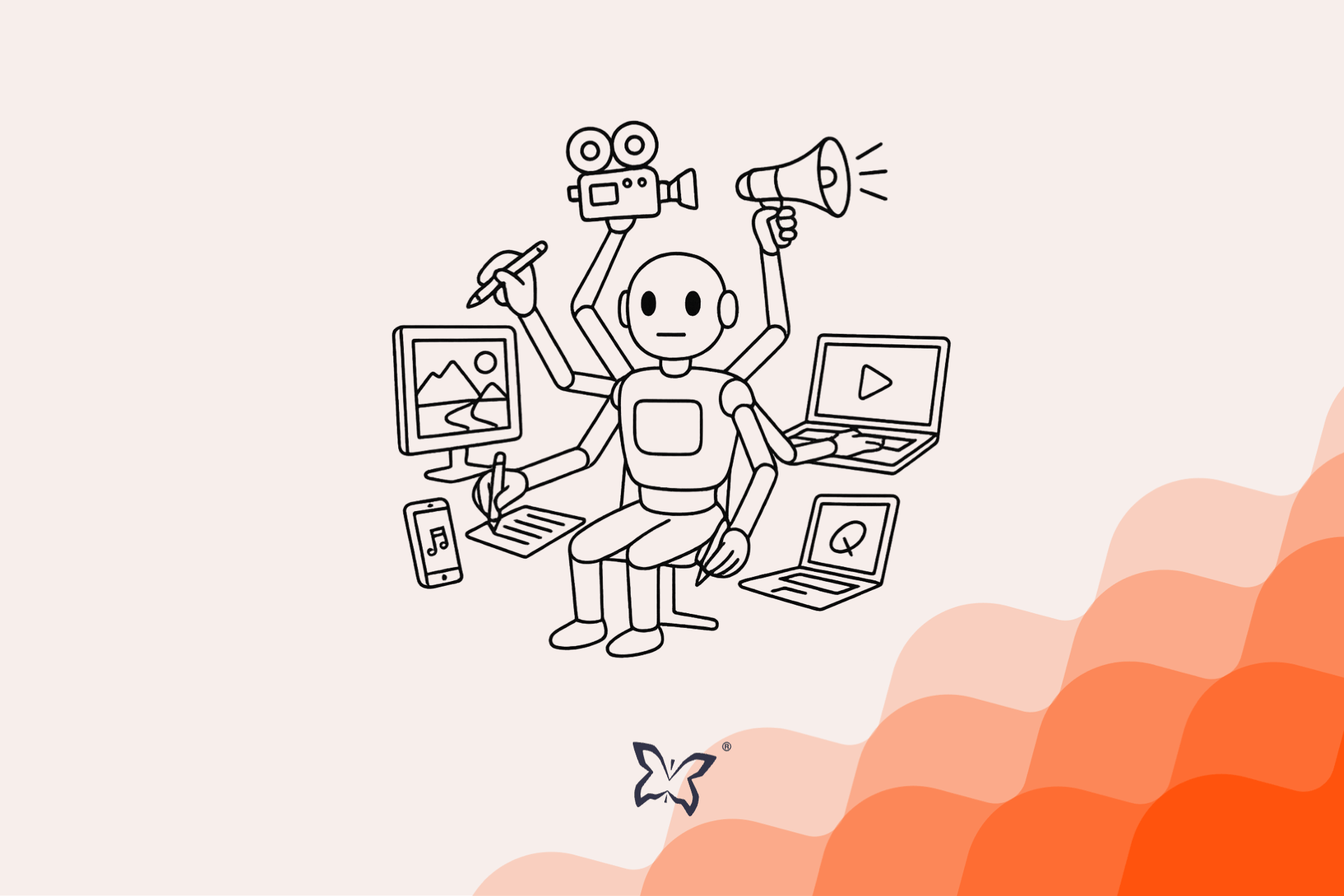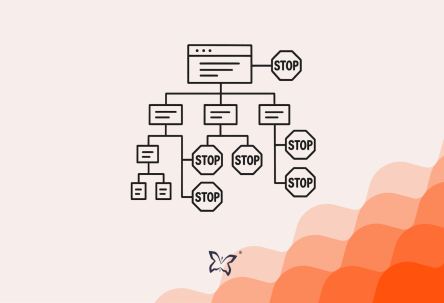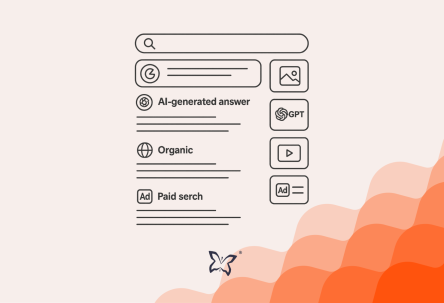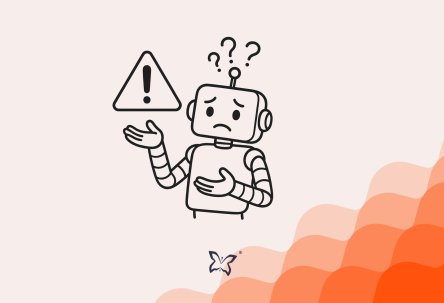We’re taking our meetings online.
We are using a range of online video options so please get in touch to have a chat.

Need expert advice?
Why not give us a call and see how we can help you with your project?
01460 984284We are using a range of online video options so please get in touch to have a chat.

Why not give us a call and see how we can help you with your project?
01460 984284Jargon-free, experience-backed insights to guide your digital decisions.

Pete Fairburn

AI can now build your website. It can write the copy, design the layouts, even generate the code. It can run your ad campaigns, optimise your spend, and churn out content. Tools from Shopify, Google, and countless start-ups make execution look effortless.
The other day one of our team showed me Shopify’s new AI-powered tool. In seconds it was generating clean, reusable front-end code, spitting out page designs that looked polished and production-ready. I’ll admit, it was impressive.
For many businesses, seeing something like that will spark the thought: "...if software can build me a good-looking, functioning site in real time, why would I ever need to involve an agency again...?"
On the surface, the promise is tempting: instant websites, instant marketing, instant growth. But here’s the uncomfortable truth: execution without strategy almost never works.
A website that looks polished but doesn’t capture your business, doesn’t reach the right audience, and doesn’t support your growth goals is just a pretty brochure. A campaign launched without a clear positioning and measurement framework is just money flowing into Google’s pockets.
If every agency disappeared tomorrow and all you had was AI tools, would you really get the outcome you need by typing your business description into a prompt?
If your goal is genuine transformation and measurable growth, the answer is almost certainly no.
Let me give you a real example. Last year, a global, household-name business came to us with what they believed was a strong brief for a new digital platform. On the surface, it looked fine: a couple of pages of bullet points and statements describing what they thought they needed.
But as soon as we started digging, questions poured out:
Almost every answer came back as either, “we’re not sure,” or created further ambiguity. It wasn’t that they hadn’t tried—the brief was as detailed as they could make it—but they simply weren’t experts in planning web applications. Why would they be? Their expertise lies in their own industry, not in digital strategy.
What that project really required was a joint approach: two agencies, each bringing different expertise, working together through a full discovery process. Only then could the brief become something that would stand up to execution.
Now imagine putting that same “brief” into an AI tool. Would it have spotted the compliance issues? Would it have known where industry-specific integrations would break? Would it have challenged the client’s assumptions instead of just feeding them back with a polished veneer? Of course not. AI chatbots have a tendency to by sycophantic to a fault.
At best, it would have produced something that looked like a plan, but in reality, it would have been a collection of unchecked assumptions, impossible to execute without major rework.
And that’s the danger. AI is brilliant at making things sound right. But businesses don’t need something that merely sounds right—they need something that works.
AI is already invaluable as a tool, but it cannot replace:
Think of it like healthcare: AI is already helping doctors with diagnostics and even assisting in surgery. But would you be comfortable being treated only by a machine? Of course not. You want the combination of human judgment, context, and accountability...augmented by the technology, not replaced by it.
Your competitors aren’t winning because they’ve found the cheapest way to build a website. They’re winning because they’ve aligned their brand, their digital strategy, and their marketing execution in a way that moves the needle on their business goals.
That’s work AI can’t do for you. Not yet. Maybe not ever.
Execution — design, code, campaign builds — will continue to get cheaper, faster, and more automated. But that’s not the value. The value sits above it:
So, do you still need an agency in 2025?
If you’re content with a website that just exists, or with campaigns that tick along without really driving change, then no, you probably don’t. AI will do that just fine.
But if you’re serious about growth, about transformation, about moving your business forward, then yes. You need experts who can ask the right questions, shape the right strategy, and ensure execution delivers outcomes worth investing in.
The real question isn’t “can AI replace an agency?” It’s: are you prepared to bet your growth on execution without strategy?
AI can help with execution, but if you’re aiming for real growth you need a partner who can ask the right questions, shape a strategy, and deliver outcomes that matter. That’s where we come in.
Can I just write my own website brief and hand it to a developer?
You can, but most briefs written internally raise more questions than they answer. Developers often need clarity on things like compliance, integrations, and business goals—areas your team may not have considered.
And remember, most developers are not business consultants, so you can't always rely on them to spot the gaps.
A good agency will help refine your brief into something actionable and aligned with your objectives.
What should a website brief include?
At minimum: your business goals, target audience, key functionality, and success metrics. But the real value comes from asking the hard questions about why you need certain features and how they’ll support growth.
That’s usually best done through a structured discovery process.
How long should a website brief be?
It’s not about length, it’s about quality and clarity. Two pages of vague statements can be less useful than a half-page of well-thought-out requirements. The strongest briefs are usually short, but built on detailed conversations and planning sessions.
Why do so many website briefs fall short?
Because businesses know their trade, not digital planning. Even large, global companies struggle to anticipate all the questions a digital project raises.
That’s why agencies add value...not just in execution, but in shaping the plan so execution delivers results.
Can AI help me write a better website brief?
AI can draft something that looks polished, but it won’t challenge your assumptions or spot gaps specific to your industry. At best, it can give you a starting point.
At worst, it can give you false confidence in a plan that doesn’t hold up when you try to build it.

Commercial Director
Pete is a Co-founder and Director at morphsites. He helps businesses turn complex digital challenges into clear, achievable plans. He’s especially focused on making sure websites and marketing efforts actually support the goals of the business, and don’t just look good on paper.
 PPC Frustrations Part 1 - Why Google Ads often fail before the first ad even runs
PPC Frustrations Part 1 - Why Google Ads often fail before the first ad even runs
 PPC Frustrations Part 2 - Why do Google Ads get clicks but still fail to convert?
PPC Frustrations Part 2 - Why do Google Ads get clicks but still fail to convert?
 PPC Frustrations Part 3 - Why don’t Google Ads leads turn into customers?
PPC Frustrations Part 3 - Why don’t Google Ads leads turn into customers?
 The hidden cost of indecision
The hidden cost of indecision
 Finding the extraordinary in the ordinary
Finding the extraordinary in the ordinary
 Before you build, find out if you should
Before you build, find out if you should
 Are you solving the right problem?
Are you solving the right problem?
 More signal, less noise
More signal, less noise
 Do you still need an agency in 2025 or can AI do it all?
Do you still need an agency in 2025 or can AI do it all?
 Is AI changing how we should plan websites and marketing strategies?
Is AI changing how we should plan websites and marketing strategies?
 Planning a Website or Digital Project? Here’s What to Do First.
Planning a Website or Digital Project? Here’s What to Do First.
 Can AI replace your development team?
Can AI replace your development team?
 Why one client spent 10x more on a custom website and never looked back
Why one client spent 10x more on a custom website and never looked back
Not sure where to start with your digital project?
We’ve guided businesses through complex builds, integrations, and marketing strategies. Let’s have a conversation about how we can support your goals.


Before investing in a new website or digital marketing, make sure you’re building the right thing. This article explains the value of strategy, UX, and technical planning through the lens of a well-known brand that skipped discovery and paid the price.

By Pete Fairburn

AI has changed how people search...and how your website needs to respond. This article explores why discovery, clearer content, and strategic paid search are becoming essential in a world of AI-generated answers.

By Dan Drummond

AI can write code, but should it build your entire platform? Discover the hidden risks of replacing your development team with AI and how to use it safely.

By Pete Fairburn
Need expert advice?
Let’s talk results
© 2026 morphsites Ltd. All rights reserved E&OE. Registered in England no. 07116238. The ‘morphsites’ wordmark and butterfly device are registered trademarks of morphsites Ltd.